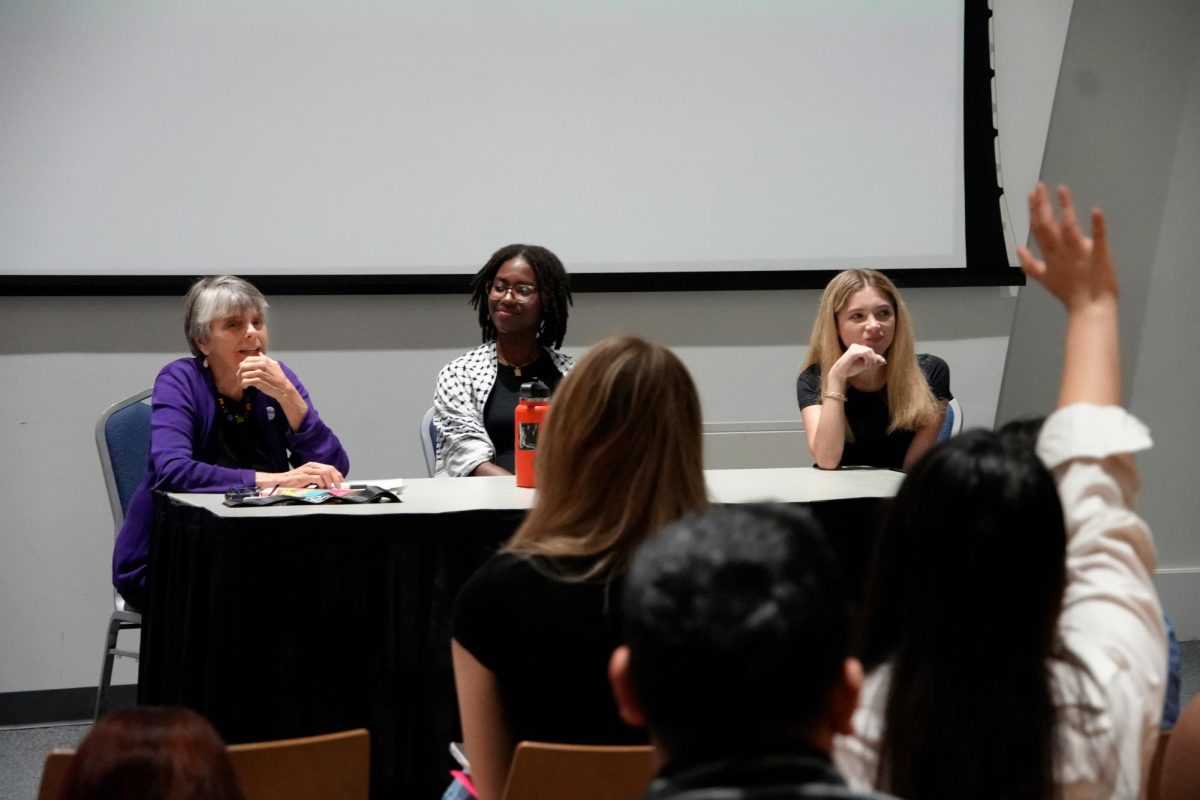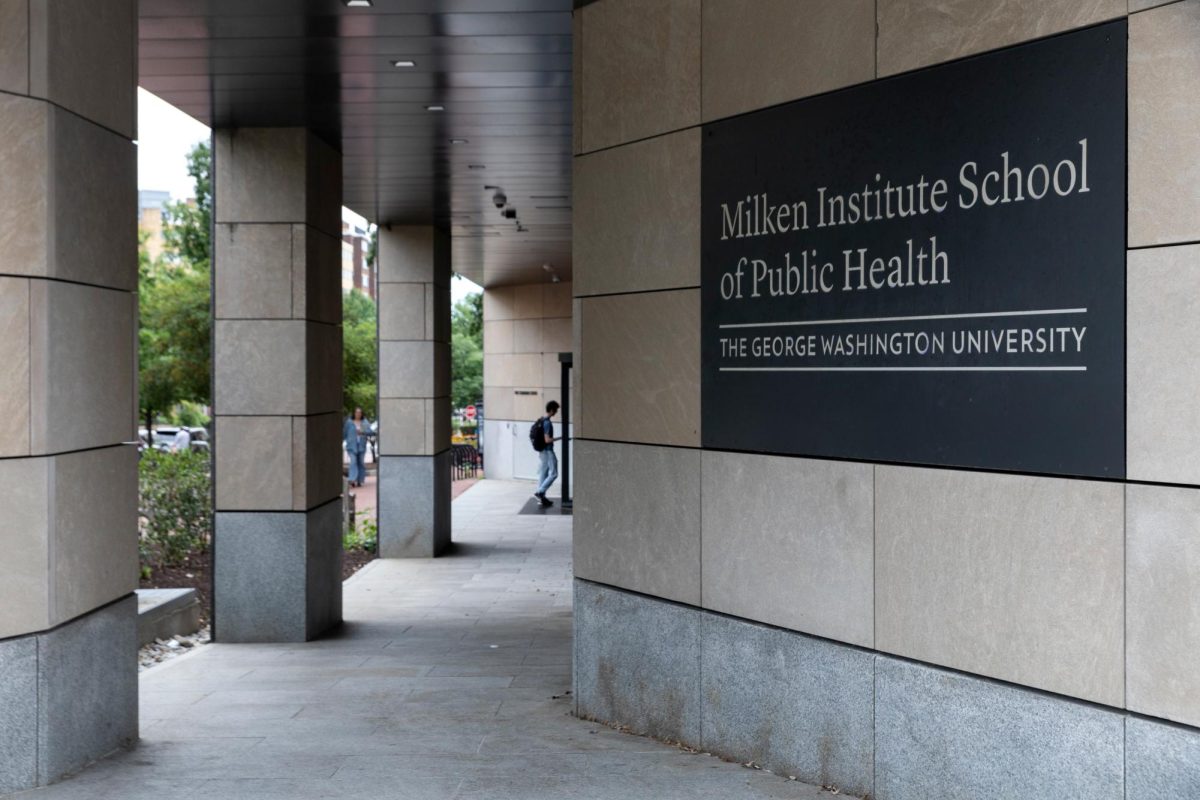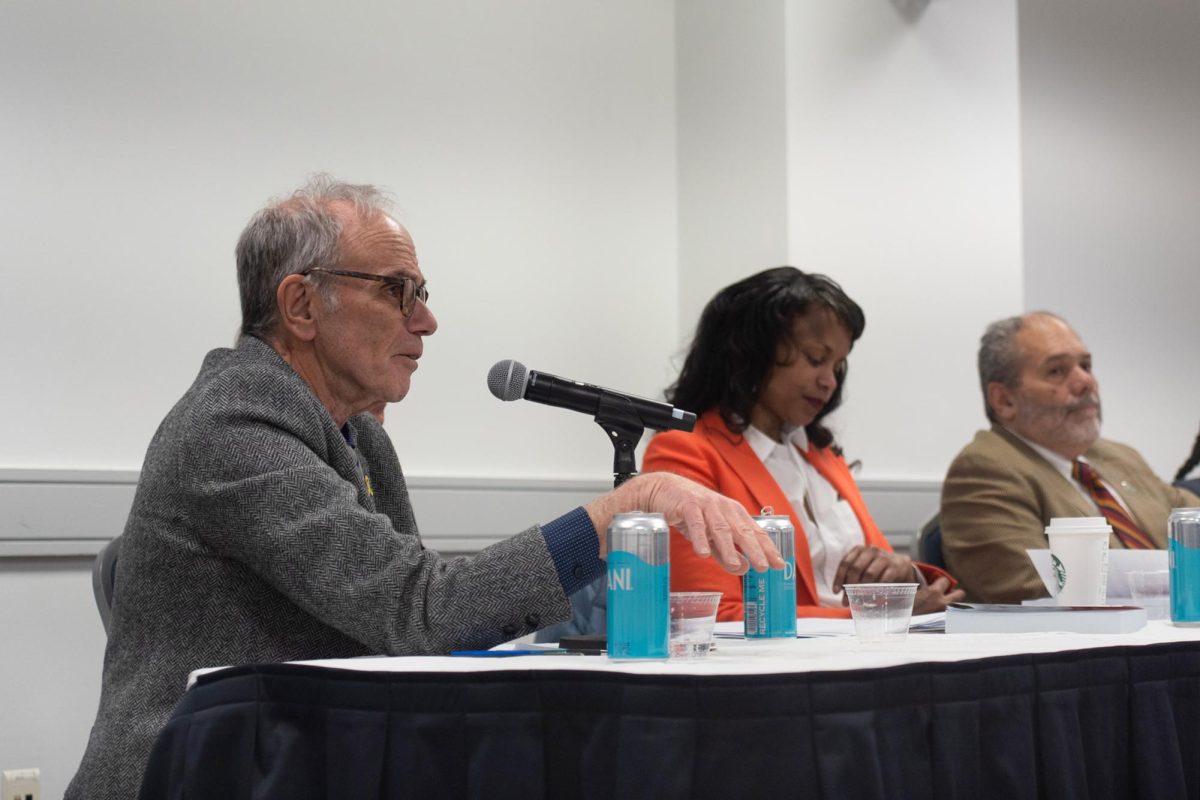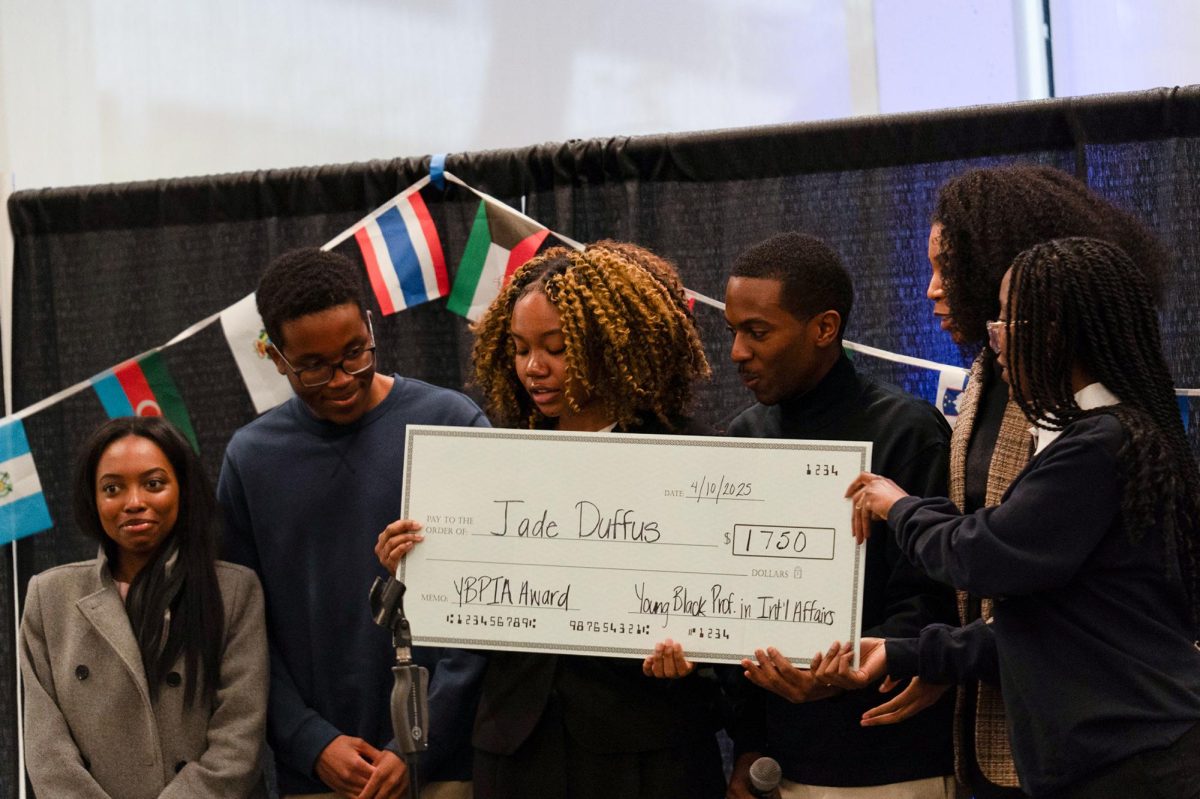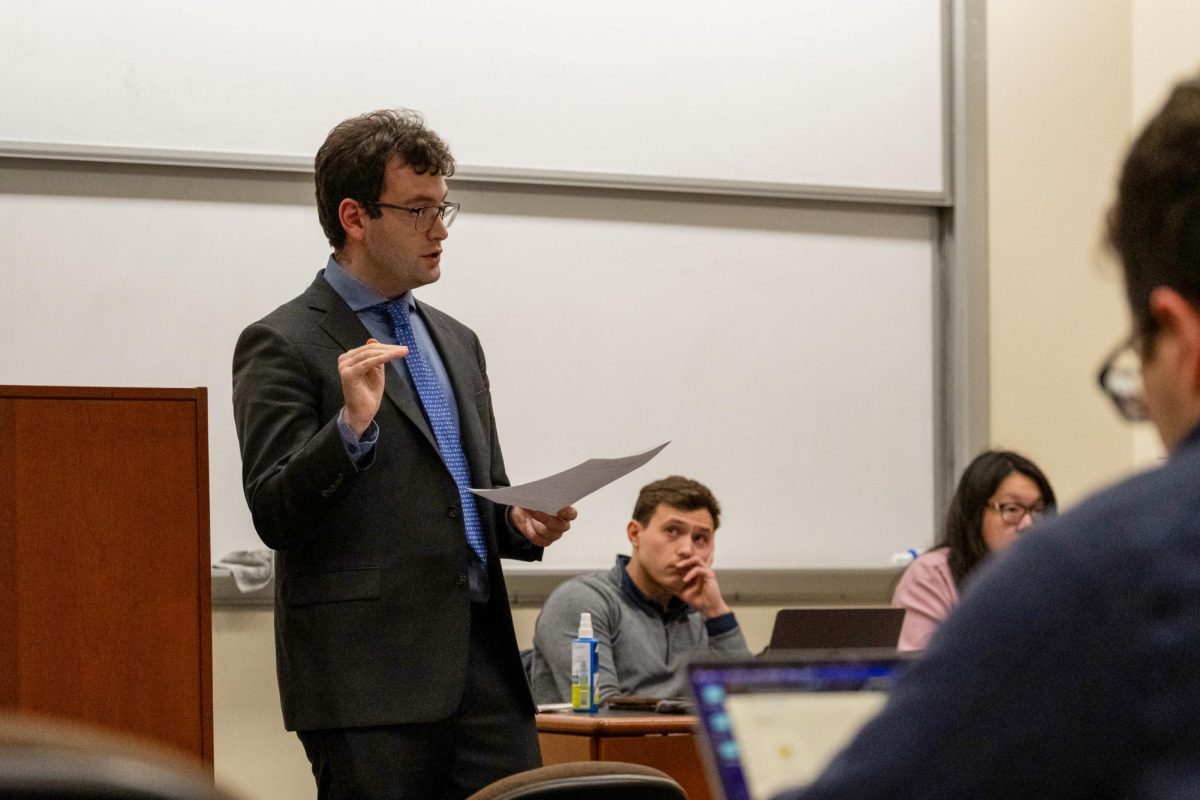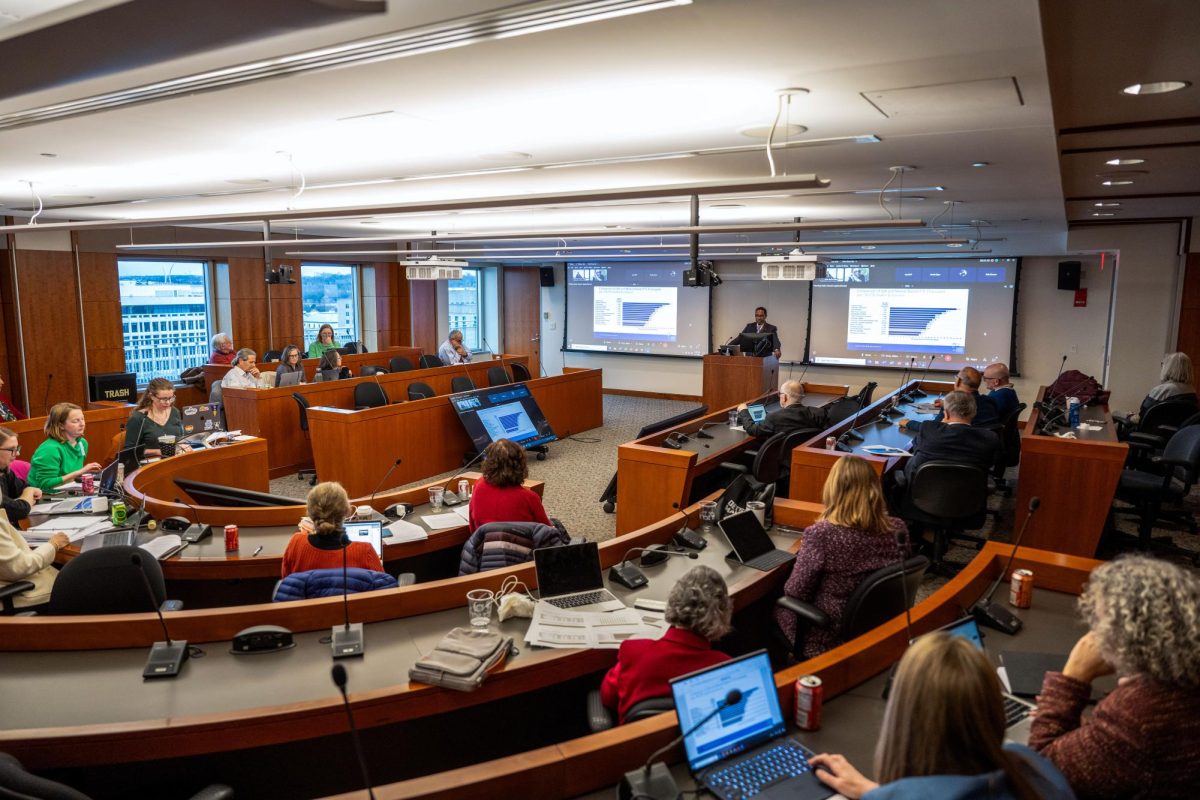The plaintiff from the landmark U.S. Supreme Court case Tinker v. Des Moines encouraged student activists to exercise their free speech and expression rights at the University Student Center on Monday.
Mary Beth Tinker, who sued the Des Moines school district in 1968 with her parents for infringing on her first amendment right to protest the Vietnam War, discussed free speech rights and the challenges students face while protesting at schools and on college campuses. The event, hosted by American Civil Liberties Union of GW President Sophia Kagan, featured a panel with Tinker, GW Black Defiance member Jovanna Walker and GW Dissenters member Neha Darisi, who attended via Zoom because she said she is currently on disciplinary probation from the University.
Tinker said in 1965 when she was 13 years old her school’s administration suspended her and four other students for wearing black armbands to class to protest the Vietnam War. Tinker and her parents accepted the ACLU’s offer to take the case to court, but lost both in the U.S. District Court for the Southern District of Iowa and their appeal to the U.S Court of Appeals for the Eighth Circuit.
After losing in the lower courts, Tinker said the country witnessed a similar case at the time in Mississippi, where students protested the murders of three civil rights activists by wearing pinback buttons. She said her case was very similar but these students won in the Fifth Circuit Court of Appeals, making this a “circuit split.” Tinker was then able to appeal to the Supreme Court, and in 1969 they ruled 7-2 in favor of students’ first amendment right to protest, claiming the right still applies to students when they’re under a school’s supervision.
Tinker said she left her career as a pediatric nurse about 10 years ago to launch the “Tinker Tour,” sharing her story and encouraging students to speak up for their beliefs.
“I started seeing a lot of these young people need to start speaking up for themselves, improving their conditions, standing up for themselves,” Tinker said.
Tinker wore a black armband with “Gaza” etched into the fabric during the event, which she said was a “symbol of grief.” She said James Baldwin and Bayard Rustin, both civil rights activists, originally came up with the idea of wearing black armbands to the memorial services of the four black girls from Birmingham that were murdered by the Ku Klux Klan when they bombed a church.
“I am grieving because of the horrible atrocities that humanity allows to be heaped onto others,” she said. “I’m grieving for what is happening to the Palestinians. I grieve for what happened to some of the Israelis who were attacked.”
Tinker said she did not expect for her “little ordinary” action of wearing the armband to turn into a landmark Supreme Court case defending free speech rights. She said she’s an example of why it’s crucial that students speak up for themselves even if they receive pushback from other community members.
Kagan asked Tinker and the student panelists about the future of student organizing and how they anticipate college and university administrators will respond. Tinker said currently some officials have advocated for a “repression of voices” on campuses and called for unity.
“I feel like it’s very hard times that we’re looking at and that things could get a lot worse as far as repression of voices of students and others. So I think we need to connect each other and strengthen ourselves and each other,” Tinker said.
Darisi, who attended the event via Zoom, said she is currently on disciplinary probation until May 2025 and has a stay-away order from GW where she is only allowed to enter campus for classes and work. In July, the Student Coalition for Palestine at GWU alleged that officials sanctioned more than 15 students and 10 student organizations in relation to pro-Palestinian protest.
Darisi gave advice for students interested in organizing protests who are afraid of retribution from the University.
“You know, we can either sit on the sidelines and watch as these things happen, or you can get organized and participate in the change you want to see,” Darisi said. “And that is a choice that every person has to make.”
Walker said students received “so many” emails from the Office of Students Rights and Responsibilities, since renamed the Office of Conflict Education and Student Accountability, following Hamas’ Oct. 7 attack on Israel in which 1,200 people were killed by Hamas, the militant group and U.S. designated terror organization.
“It’s about being a disruptor. It’s about being a healer,” Walker said. “And I think what people realize that they have a goal to play in the revolution because revolution is about community. That’s when we see that growth in coalition building.”


